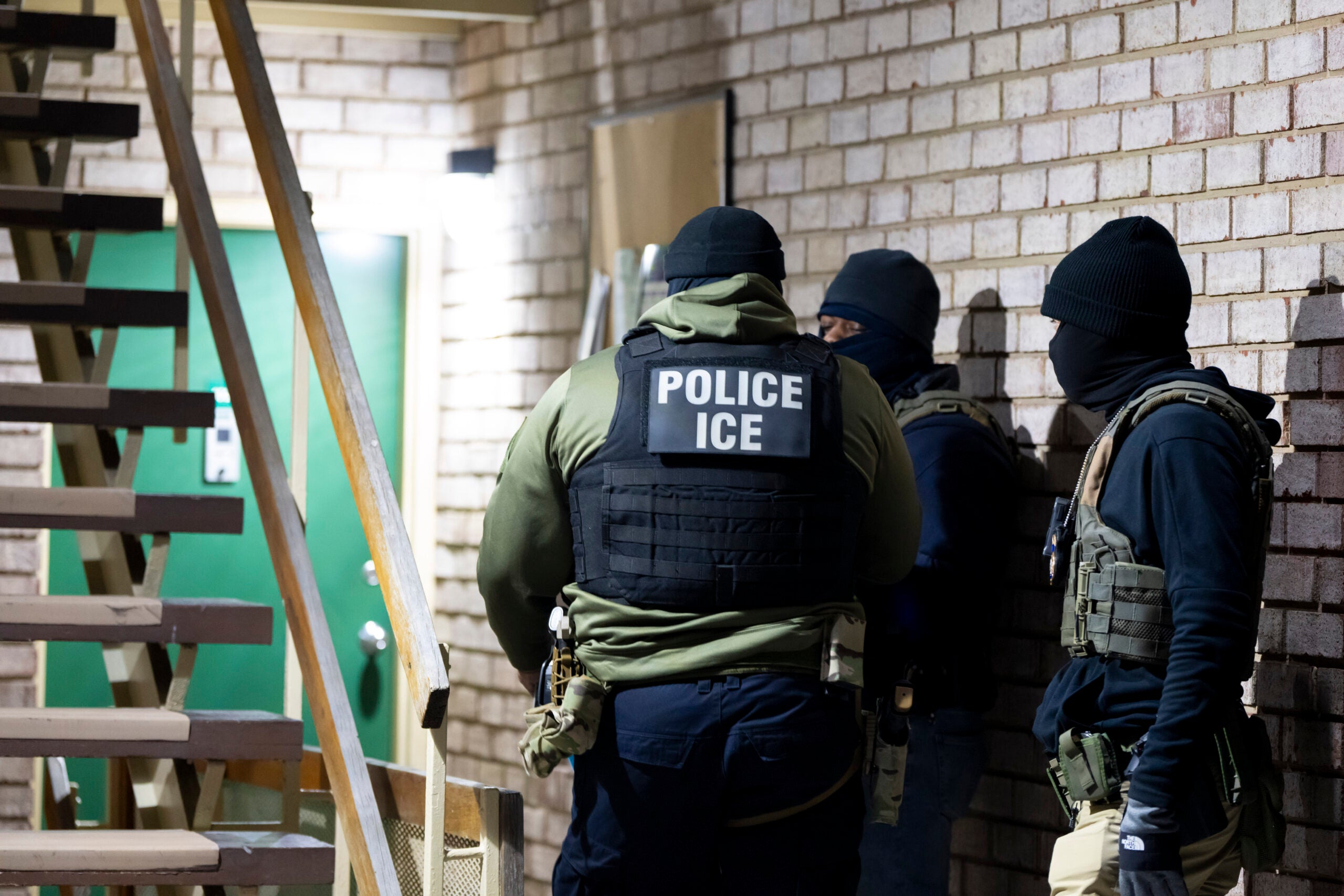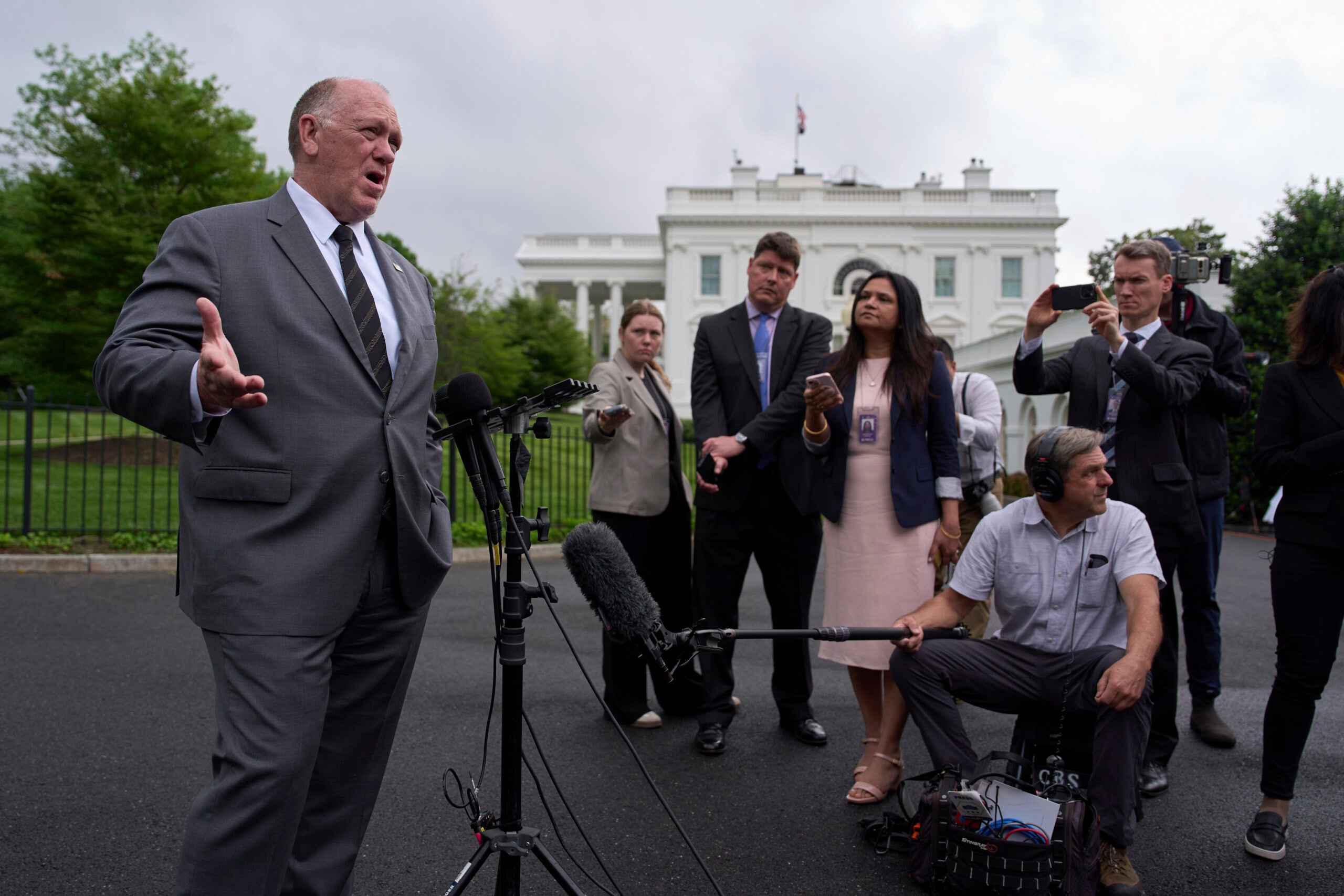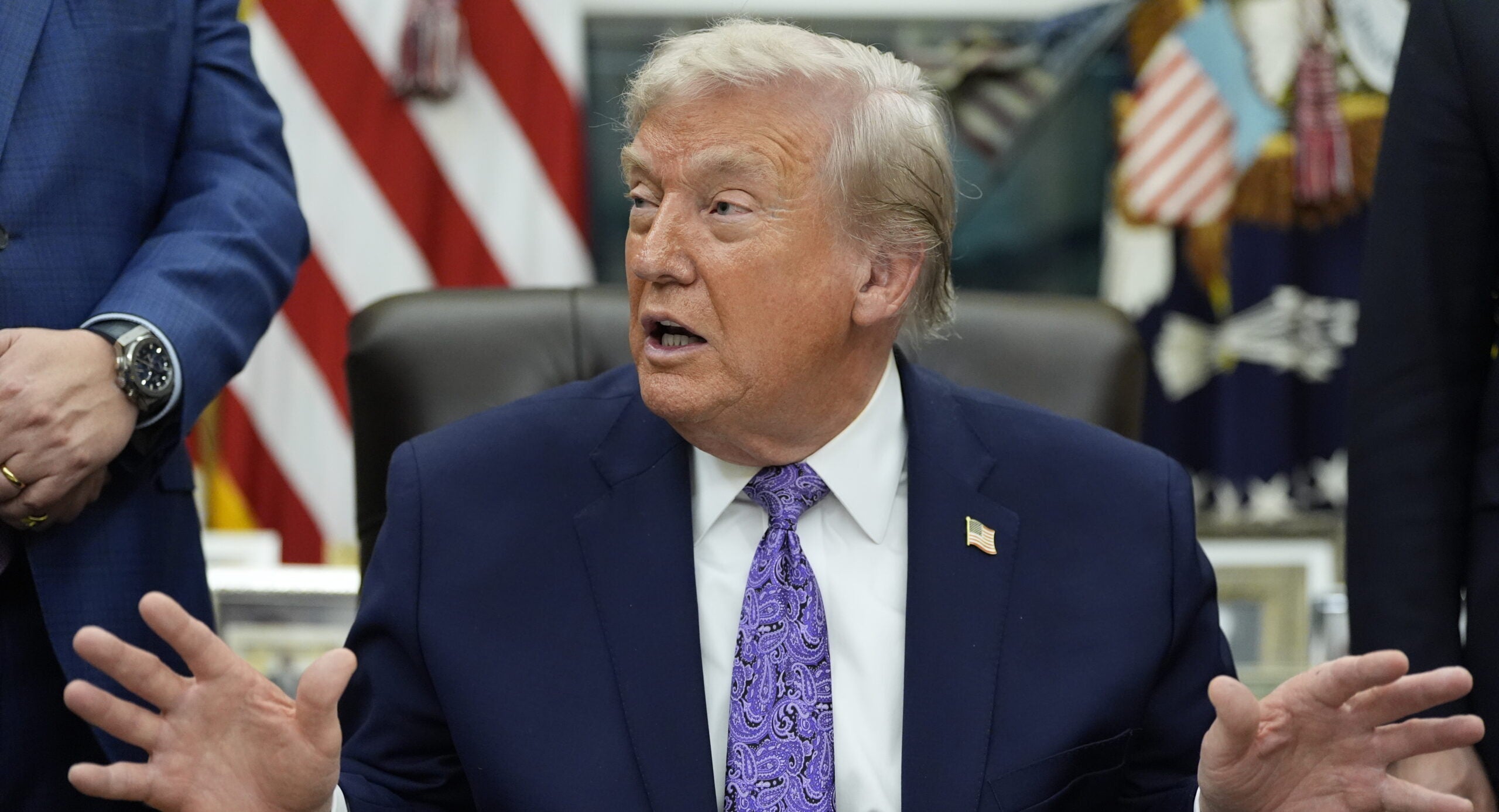The Trump administration’s border czar, Tom Homan, has criticized Wisconsin Gov. Tony Evers over guidance he gave last month to Wisconsin state employees on how to respond to requests from Immigration and Customs Enforcement, or ICE.
Homan implied that Evers’ memo, which has also received blowback from Republicans in the state legislature, was directing state employees to violate federal law.
“Wait to see what’s coming,” Homan said when asked to comment on the memo by far-right website Gateway Pundit, which has published conspiracy theories. Evers has interpreted Homan’s remarks as a threat.
News with a little more humanity
WPR’s “Wisconsin Today” newsletter keeps you connected to the state you love without feeling overwhelmed. No paywall. No agenda. No corporate filter.
“I haven’t broken the law. I haven’t committed a crime, and I’ve never encouraged or directed anyone to break any laws or commit any crimes,” Evers said in a three-minute video addressed to Wisconsinites as an official response to Homan.
Legal experts say that the guidance contained in the memo does not constitute an obstruction of justice.
“Calling a lawyer and getting advice about how to respond to a warrant is not illegal, and to the extent Tom Homan is claiming that that is some way obstruction, he is simply misinterpreting [the law] and intimidating state and local officials in a way that we should all be concerned about,” said Tim Muth, senior staff attorney at the American Civil Liberties Union of Wisconsin.
Muth joined WPR’s “Wisconsin Today” to discuss the clash between Homan and Evers over how state and local officials should respond to immigration enforcement.
The following has been edited for brevity and clarity.
Kate Archer Kent: What exactly did this memo say to get the attention of President Trump’s border czar, Tom Homan?
Tim Muth: Well, I really wonder if he’s even read the memo, because the memo is pretty unexciting. It simply tells state of Wisconsin employees that if … immigration officials show up at a state office, they should ask them to identify themselves, to provide any warrant or other information that they have, and to contact the state of Wisconsin’s lawyers to help them interpret how they should respond. … It’s simply complying with Wisconsin law and with the Fourth Amendment.
KAK: Gov. Evers had already been criticized by Republicans here in Wisconsin who believe this memo encourages state employees to break federal law by obstructing ICE agents. Assembly Speaker Robin Vos called it a “new low for Tony Evers.” What are their arguments?
TM: Their arguments seem to be that whatever the Trump administration and ICE agents ask for, they should get, regardless of whether or not it violates Wisconsin law or the Fourth Amendment. If you think about all the information that our state agencies have — they have personal information about our health and medical care, about our education, about our finances and our taxes — and Wisconsin law requires that our state agencies protect our personal information, so this memo is really just re-emphasizing that and asking ICE to comply with the requirements of Wisconsin law and the Fourth Amendment before information gets turned over.
If ICE is complying with the laws, they shouldn’t have any problem getting information that they are entitled to get. So the arguments from the Republicans that this is somehow blocking ICE activity — all it’s blocking is ICE activity that doesn’t comply with Wisconsin law or the Fourth Amendment.

KAK: I want to pull apart the words for a moment. “Wait to see what’s coming” is the phrase that border czar Tom Homan had used before talking about the possibility of arresting local leaders of sanctuary cities. Evers interpreted these words as a threat. What do you hear in Homan’s rhetoric?
TM: Tom Homan has expressed before that he finds that people asserting their rights gets in the way of the mass deportation plan that the Trump administration has. And so these threats and intimidation toward local officials, state officials is nothing new.
I think it’s connected to the recent executive order signed by President Trump that threatens significant reductions of federal funding to any local government that they believe is enacting what they call “sanctuary policies.” It’s all part of a pattern of executive overreach attempting to get state and local officials to be in lockstep with the mass deportation efforts of the Trump administration.
KAK: This all happened just a week after Milwaukee County Judge Hannah Dugan was arrested and charged with two federal counts of impeding immigration enforcement. Homan used the same term to talk about Evers, calling it the “line of impediment,” referring to obstructing ICE. What is that line, legally?
TM: There are federal statutes about hiding people or helping them evade arrest, and that is the federal statute that Tom Homan is talking about enforcing. But it is not a violation of the harboring statute to insist that ICE agents comply with the law. … It’s not a violation of that statute to say that we are not going to voluntarily turn over information that we are not required to turn over.
There seems to be this belief on the part of the Trump administration that unless you are doing everything we ask, even things that you are not legally required to do, then you are obstructing and violating the law, and that’s simply not the case.
KAK: We see a lot of grandstanding in politics right now. We see this inflammatory rhetoric, especially online. But what could happen to Gov. Evers if the Trump administration sees this through?
TM: Well, the memo that was sent out, I am confident, will never be by itself the basis for any kind of criminal prosecution. … I don’t believe any judge would allow an attempt to prosecute Governor Evers or members of his administration just based on this memo.






